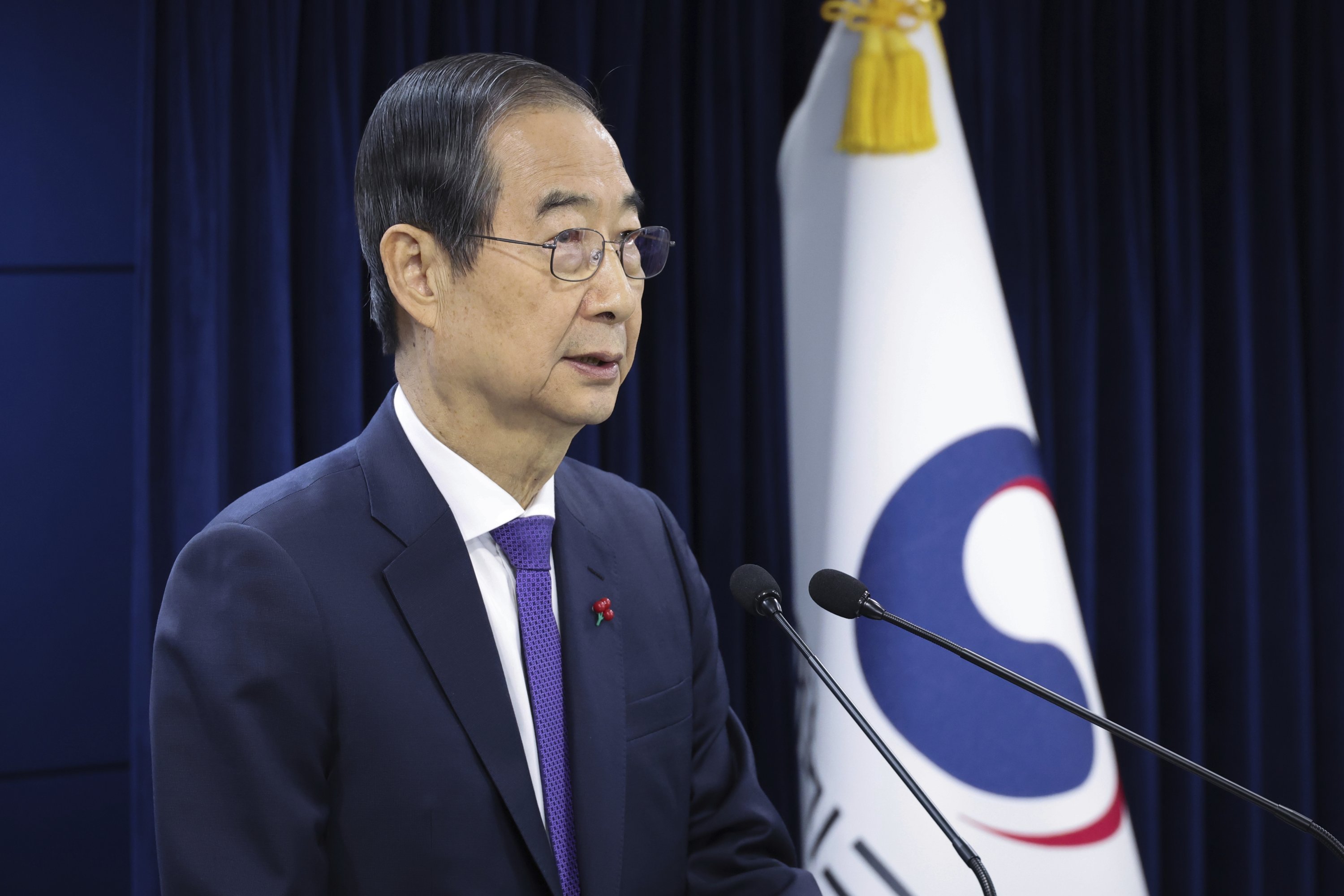© Turkuvaz Haberleşme ve Yayıncılık 2026
South Korea entered uncharted waters Friday, as parliament impeached acting President Han Duck-soo while the Constitutional Court began deliberations on the fate of suspended President Yoon Suk Yeol.
The dual impeachments, both rooted in Yoon’s controversial declaration of martial law earlier this month, have plunged the nation into unprecedented political chaos.
The turmoil began on Dec. 3, when President Yoon, 63, stunned the country by declaring martial law, a move widely condemned as an audacious power grab.
Parliament acted swiftly, passing a motion against the decree the same evening, forcing Yoon to rescind it within six hours.
Days later, lawmakers impeached Yoon, citing his failed bid to impose martial law as grounds for removal.
Suspended from office on Dec. 14, Yoon’s fate now rests with the Constitutional Court, which has six months to decide whether to permanently remove him or reinstate him.
With only six sitting judges out of nine, the court faces the risk of deadlock – just one dissenting vote could see Yoon reinstated.
As Yoon’s trial commenced, his stand-in, acting President Han Duck-soo, found himself at the center of a political storm.
Opposition lawmakers accused Han of obstructing the impeachment process by refusing to appoint three judges to the Constitutional Court.
On Friday, the Democratic Party, which holds a parliamentary majority, introduced a motion to impeach Han, marking the first-ever impeachment of an acting president in South Korea’s history.

The motion passed with 192 out of 300 votes amid chaotic scenes, as ruling party members surrounded the speaker’s podium, decrying the move as “tyranny.”
“Today, our Democratic Party impeaches Prime Minister Han Duck-soo in accordance with the people’s mandate,” declared party leader Lee Jae-myung. He accused Han of “transforming acting authority into insurrectionary authority” and violating his constitutional duties by withholding the court nominations.
If the impeachment is upheld, Finance Minister Choi Sang-mok will assume the acting presidency, becoming the country’s third leader in just over two weeks.
The impeachment turmoil has rippled across South Korea’s economy, with the won plunging to 1,480.2 against the U.S. dollar on Friday, its lowest level in nearly 16 years.
The currency had already weakened following Yoon’s martial law declaration, as nervous investors pulled out of Asia’s fourth-largest economy.
Finance Minister Choi pleaded for stability, warning that continued political uncertainty would exacerbate the economic strain. “Our economy and people’s livelihoods are already on thin ice amid this national emergency,” Choi said at an emergency press conference.
The Constitutional Court’s composition has become a flashpoint in the crisis.
The court, designed to have nine judges, is currently operating with six due to the vacancies.
Opposition lawmakers demand Han approve three nominees to ensure a fair trial for Yoon, but Han has resisted, insisting such appointments require bipartisan agreement.
“The consistent principle of our constitution is to refrain from exercising exclusive presidential powers,” Han argued, urging compromise between the ruling People Power Party and the opposition.
Opposition lawmakers see Han’s stance as a direct affront to constitutional order. “Han has revealed his true colors,” said Democratic Party lawmaker Jo Seoung-lae. “We must impeach him to restore stability and uphold the law.”
As the political drama unfolded, the Constitutional Court held its first preliminary hearing on Yoon’s impeachment trial.
The president’s legal team submitted their arguments, setting the stage for a high-stakes trial in the coming weeks.
Meanwhile, police intensified their investigation into Yoon’s martial law declaration, raiding the presidential compound and collecting CCTV footage as evidence.
